About Us
- Incrementar
- Incrementar
BMV Group is a fully integrated Exchange Group that operates cash, listed derivatives and OTC markets for multiple asset classes, including equities, fixed income and exchange traded funds, as well as custody, clearing and settlement facilities and data products for the local and international financial community.
BMV is the second largest stock exchange in Latin America with a total market capitalization of over US$ 530 billion.
VIEW TIMELINE- Prev
-
-
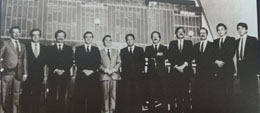 1880 -1900
1880 -1900THE BEGIININS OF THE STOCK-TRADING LIFE: The streets of Plateros and Cadena, in Mexico City?s downtown, witnessed meetings where brokers and entrepreneurs bought and sold all sorts of assets on the street. Later, exclusive groups of stockholders and issuers were comprised, who met to trade behind closed doors in different parts of the city.
-
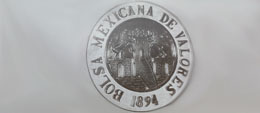 1894
1894BROKERS BEGAN ORGANIZING: In 1894, Manuel Algara, Camilo Arriaga and Manuel Nicolin promoted among the most prominent trading brokers of their time, the idea that the negotiation of assets should have a regulatory and institutional framework. On October 31, 1894 the National Stock Exchange was founded, headquartered on the street of Plateros No. 9 (now Madero).
-
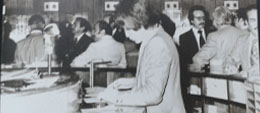 1895
1895THE STOCK EXCHANGE OF MEXICO IS BORN: Another group of brokers, helmed by Francisco A. Llerena and Luis G. Necoechea, formed a partnership under the name Bolsa de Mexico (Mexico’s Stock Exchange), registering the public deed on June 14, 1895. The meeting of objectives and links between members from both groups led to the merger, preserving the name Bolsa de Mexico, S.A. Headquarters were maintained on Plateros No. 9.
-
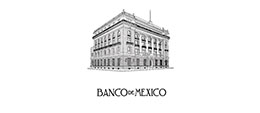 1896
1896MEXICO'S STOCK EXCHANGE'S FIRST ISSUERS: On early 1896 three public issuers and eight private ones were listing; among the latter, the Bank of Mexico, the National Bank de Mexico, the Bank of London, and the Internacional Hipotecario (Mortgage International).
-
 1933
1933BOLSA DE VALORES DE MÉXICO S.A.: The deed and statutes of the Bolsa de Valores de Mexico, S.A. were approved in accordance with the concession authorized on August 28, 1933, which for the first time included the stock exchanges. The articles of incorporation were registered on September 5, 1933. The Regulatory Law on Stock Exchanges is enacted and the Stock Exchange of Mexico (Bolsa de Valores de Mexico, S.A.) is constituted, supervised by the National Council on Securities (nowadays the National Banking and Securities Commission).
-
 1950 -1960
1950 -1960THE STOCK EXCHANGES OF MONTERREY AND GUADALAJARA ARE BORN: The industrial and commercial development, as well as the accrual of capital and the constant emergence of companies, led in 1950 to the creation of the Stock Exchange of Monterrey. The Western Stock Exchange began operations in Guadalajara, which had been taking shape since 1956.
-
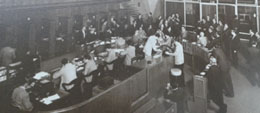 1975
1975A SINGLE STOCK EXCHANGE IS CONSOLIDATED: The Securities Market Law came into effect, and the Stock Exchange of Mexico changed its name to Mexican Stock Exchange (BMV), which incorporated the Guadalajara and Monterrey stock exchanges.
-
 1988
1988The electronic information display begun of the Capital and Money Markets.
-
 1990
1990THE NEW HEADQUARTERS WERE READY: The construction process of the Stock Exchange Center, which begun in March 1987, was finished in the early 90’s, after 36 months of intensive work. The new and current stock Exchange headquarters were opened on April 19, 1990. At the new site, the Selling Floor operation maintained the live calling session with a full electronic information display.
-
 1993
1993MEXICANS GO AFTER ADR's: A considerable number of Mexican Companies list on foreign markets through ADRs.
-
 1994
1994Foreign stock exchanges enter the Mexican Market.
-
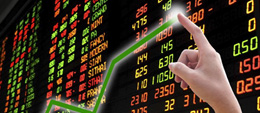 1995
1995THE EXCHANGE ACQUIRES AN ELECTRONIC SYSTEM: The Mexican Stock Exchange introduces the BMV-SENTRA Debt Securities system.
-
 1998
1998MEXDER Y ASIGNA ARE BORN: MexDer y Asigna begins operations, considering the live calling scheme. The Derivatives Market (MexDer) was established on December 15, 1998 by listing futures contracts on the dollar.
-
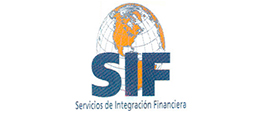 1998
1998THE FINANCIAL INTEGRATION SERVICES ARRIVE: The Financial Integration Services (SIF) company is established, which operates the negotiation instruments system of the debts securities market (BMV-SENTRA Debt Securities).
-
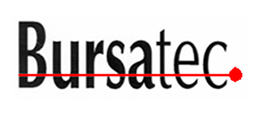 1998
1998Bursatec is born amid a highly competitive environment as a subsidiary of the Mexican Stock Exchange and S.D. Indeval. Its aim is to provide state-of-the-art technology for the national market to ensure the operational continuity through the use of advanced technology, thus driving the growth of the financial markets within an international competitiveness framework.
-
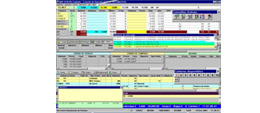 1999
1999THE MARKET BECOMES ELECTRONIC: All the negotiations of the Capitals Market were incorporated into the electronic system. From then on, transactions are fully made through the BMV-SENTRA Capitals electronic negotiation system.
-
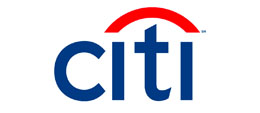 2001
2001THE FIRST FOREIGN COMPANY IS REGISTERED: Citigroup becomes the first foreign company to register in the Mexican Stock Exchange, which led the way for new companies, especially from Central and South America. During that year the Stock Exchange was incorporated as a Debt instrument and the Securities Market Law was reformed taking into consideration the demutualization of the BMV.
-
 2002
2002THE MEXICAN CORPORATION OF THE SECURITIES MARKET IS BORN: The services firm Mexican Corporation of the Securities Market (Corporativo Mexicano del Mercado de Valores, S.A. de C.V.) is established for to hire, manage and control the staff from the Stock Exchange and the other financial institutions of the Stock Exchange Center who joined the process.
-
 2003
2003THE GLOBAL MARKET OPENS: Mexican investors have access to international shares through the Mexican Stock Exchange.
-
 2004
2004The Central de Valores (Securities Central Company) counterparty begins. Also, THE OPTIONS MARKET OPENS: The Options Market is launched through a strategic alliance with the Spanish market of financial futures. This market has IPC’s future options, individual and foreign exchange shares. The Securities Central Counterparty began operations. Also, during that year new instruments were listed for the global market: Europe Section, Asia, ETFs, i-SHARES, among others.
-
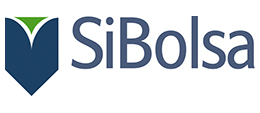 2005
2005SIBOLSA IS LAUNCHED: The Stock Exchange launched the SIBOLSA product, which substitutes the technological platform of more than 10 years, known as SIVA. This new system allows the Stock Exchange to approach the final investor aware of the savings customer’s and the retail investment market’s needs. For this launching, a trading agreement is signed with the Spanish and the German Stock Exchanges. That year, the Siefores enter the BMV’s stock market. And, the Stock Exchanges enter the clients’ orders market through electronic transaction algorithms.
-
 2006
2006MexDer OPENS ITS OPERATIONS TO FOREIGNERS: allowing them to operate from anywhere in the world. The foreign participation in this market is very important, as it offers the highest international standards. During the month of October, 4 TRAC?s over indexes from the Stock Exchange itself are listed, positioning the BMV at the top in Latin America with the largest number of ETFs listed over own indexes and as a leader of its own and third parties? EFTs in Latin America.
-
 2008
2008On June 13, 2008 the Initial Public Offering from the Mexican Stock Exchange is carried out, listed as an issuer with the ticker symbol BOLSA A.
-
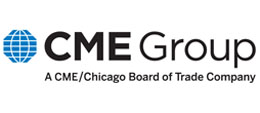 2010
2010BMV SIGNS AN ALLIANCE WITH THE CME: The BMV signed an alliance with the largest derivatives Stock Exchange in the world, the Chicago Mercantile Exchange (CME) thus taking the Mexican derivatives to the large international investors. During that year, a communications protocol for the transaction of Capitals, known as FIX, was implemented; also, the operational model of the Mexican market was substantially modified through the implementation of the RINO project.
-
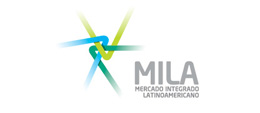 2011
2011The BMV signs an intention agreement with the Stock Exchanges comprising the Latin American Integrated Market (MILA). In the framework of the II Summit of the Pacific Alliance held in the City of Merida, Yucatan, the Mexican Stock Exchange signed an Intention Agreement with the Stock Exchanges from Colombia, Lima (Peru) and Santiago (Chile), which comprise the Latin American Integrated Market (MILA).
-
 2011
2011THE SUSTAINABLE IPC IS LAUNCHED: The international trend and current environment demand new initiatives which foster a greater social responsibility from the companies and the securities markets. The Sustainability Indexes allow to follow-up on the companies’ performance in matters of environmental care, social responsibility and corporate governance.
-
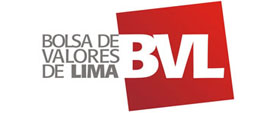 2013
2013A STRATEGIC AGREEMENT IS SIGNED BETWEEN THE BMV AND THE BVL: The BMV, through its subsidiary Participaciones Grupo BMV, S.A de C.V., signed with a group of stockholders, a buying and selling contract of stock, by virtue of which, subject to compliance with certain terms, it will acquire approximately 5.9% of the A Series shares of the Stock Exchange of Lima S.A. (BVL). Likewise, the investment is complemented with the signature of an agreement for a strategic alliance between both Exchanges in order to develop joint activities and business for the development of the Peruvian and Mexican securities markets.
-
- Next
Relevance
The Mexican Stock Exchange (BMV) is a public institution that operates under a concession granted by the Ministry of Finance (SHCP), observing the Mexican Securities Law.
As a result of the latest world trends and regulatory changes, the Mexican Exchange finalized with its demutualization process, becoming a company whose equities are traded within the stock market. On June 13th 2008, The Exchange conducted an Initial Public Offering of the shares representing its capital stock.
Functions
The Mexican Stock Exchange (BMV) is a forum where the organized securities market transactions are held, as its main objective is to facilitate the securities transaction process as well as the market development, fostering its expansion and competitiveness through the following functions:
- Establish the facilities and mechanisms as an aid in the relationship of the securities supply and demand, credit certificates and other documents registered at the National Securities Registry (RNV), as well as providing the necessary services for underwriting, offering and the exchange of the aforementioned securities.
- Publish, provide and maintain available to the general public the pertinent information of the securities listed at the Mexican Excnahge and at the International Quotations System (SIC), about its issuers as well as of the executed transactions.
- Establish the necessary means to oversee that the transactions held at the BMV by the Brokerage Firms comply with the applicable legislation.
- Issue regulation that sets standards, operative and conduct guidelines to promote fair and equitable market practices at the securities market; guard its observation and impose disciplinary and corrective measures in case of lack of fulfillment, that are mandatory for Brokerage firms and the issuers with listed securities at the Mexican Exchange.
The companies that require monetary resources (money) to finance its operations or expansion projects, might find it at the securities market, by issuing securities (stocks, bonds, commercial paper, etc.) which are offered to the investors (issued) and traded (bought and sold) at the Mexican Exchange, in a transparent and free competitive market with equal opportunities for all participants.
Intermediate Bodies of the Mexican Stock Exchange
Market Participation
To underwrite initial public offering, the company turns to a brokerage firm which offers them (primary market) to the investors through the BMV. By this means, issuers receive the corresponding monetary resources of the securities acquired by the investors.
Once the securities are placed among investors, they can be bought and sold (secondary market) at the exchange, through a brokerage firm.
The Mexican Exchange is the physical place where the trades made by the brokerage firms are executed and registered. Investors buy and sell stocks and debt securities through intermediaries, called brokerage firms. It is very important to state that the Bolsa Mexicana does not buy or sell securities directly.
The investors send their orders through an account executive employed by a brokerage firm.
These account executives are registered specialists that have received training and are authorized by the CNBV. The buy and sell orders are transmitted from the brokerage firm to the market through a sophisticated Negotiation, Transaction, Registry and Allocation Electronic System (MONET) where they will wait to find and equal but opposite order and thus perfect the operation.
Once that shares or debt securities have been acquired, its performance can be monitored in specialized newspapers, or through printed and the electronic information system of the Mexican Exchange.
What is the importance of a Stock Exchange for a country?
The stock exchanges world-wide are established institutions by the society for its own benefit. Investors go to them as an option to protect and increase their monetary savings, supplying monetary resources that in turn allow Corporations and Governments to finance productive and development projects that in turn generate jobs and wealth.
The stock exchanges are organized markets that contribute to this financial channeling in a free, efficient, competitive, equal and transparent way, holding up previously agreed rules by all participant parties.
In this sense, the Mexican Exchange has encouraged the development of the country since, together with the financial sector institutions has helped to allocate savings into productive investments, source of growth and employment in Mexico.









